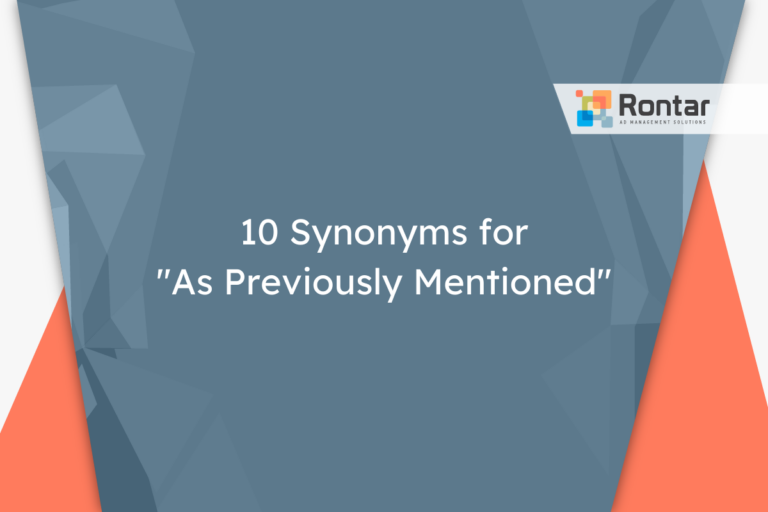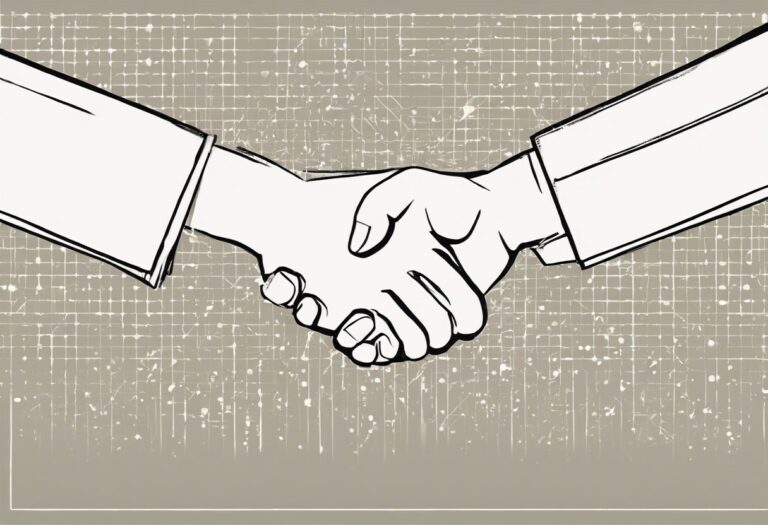10 Professional Ways to Say “Thank You for Taking the Time” in an Email

In professional emails, saying “Thank you for taking the time” is a common and respectful way to show appreciation. But, using the same phrase over and over can become repetitive.
This article offers 10 fresh alternatives to express gratitude in your emails. Each one is explained with examples to help you find the right fit for your message.
Is It Professional to Say “Thank You for Taking the Time”?
Yes, using the phrase “thank you for taking the time” is considered professional, formal, and polite. It’s a respectful way to acknowledge someone’s effort in giving you their attention or assistance. This phrase is especially suitable in professional settings where time is valuable, and acknowledging another person’s contribution to your needs or requests shows good manners and appreciation.
You should use this phrase in situations where someone has helped you by reviewing your work, providing feedback, meeting with you, or any scenario where they dedicated their time specifically to assist you. It signifies that you recognize and value the effort they made on your behalf.
Here is an example of using the phrase in an email:
Hi Samantha, I hope this message finds you well. I wanted to reach out and express my gratitude for the insights you shared during our meeting yesterday. Thank you for taking the time to go over the project details with me. Your feedback was incredibly helpful and has given me a clear direction on how to proceed. Looking forward to our next steps. Warm regards, Emily
Here are the pros and cons of using this phrase:
Pros:
- Shows appreciation and acknowledges the recipient’s effort.
- Enhances the professional tone of your communication.
- Builds positive rapport between you and your colleagues or clients.
Cons:
- Can become repetitive and lose its impact if overused.
- May sound overly formal in more casual or familiar professional relationships.
Sometimes, you might want to use an alternative phrase instead of “thank you for taking the time.” This could be because you’re looking for a way to express your gratitude more creatively, or maybe you feel the traditional phrase doesn’t fit the tone of your relationship with the recipient. Seeking synonyms or alternatives allows you to tailor your messages more closely to the personality of your professional relationships and can help keep your expressions of thanks feeling fresh and sincere. However, when choosing alternatives, it’s important to ensure they maintain the level of professionalism and clarity needed for your specific situation.
10 Other Ways to Say “Thank You for Taking the Time” in an Email
Looking for different ways to say “thank you for taking the time” in your emails? Here are ten alternatives that might fit the bill.
- Thank you for your time
- Appreciate your time
- Thanks for making time
- Appreciate you taking the time
- Grateful for your time
- Thanks for taking time out of your schedule
- Thanks for taking time out of your day
- I’m grateful that you took the time
- Many thanks for making time
- Appreciate the time spent
1. Thank you for your time
This alternative is almost identical to the original phrase but slightly shorter. It keeps the professional and polite tone, making it suitable for formal and semi-formal messages. It’s direct and to the point, which can be very effective in professional emails where brevity is appreciated.
It’s particularly well-suited for situations where you want to show appreciation after a meeting or a call. It implies that you’re respectful of the other person’s time without taking too much more of it in your email.
Here’s a short example:
Dear Mr. Thompson, Thank you very much for the meeting earlier. Thank you for your time discussing the project details; it was incredibly useful. Best, Olivia
2. Appreciate your time
This version is more casual yet maintains a polite essence. Unlike the original phrase, “Appreciate your time” comes across as more succinct and slightly more informal, which might make it a better fit for emails to colleagues you’re familiar with or for situations where brevity and a friendly tone are key.
We recommend using this phrase when you wish to convey gratitude in a straightforward but warm manner, particularly when following up on emails or after receiving a favor or assistance from someone at work.
Here’s a good example:
Hello Alex, I just finished reviewing the documents you sent over. Appreciate your time in getting those to me so quickly. Thanks again, Maria
3. Thanks for making time
Compared to the original phrase, “Thanks for making time” carries a more informal tone. It suggests that the person went out of their way to assist you, adding a layer of gratitude for their effort. It’s polite and appreciative, suitable for both professional and less formal contexts.
This alternative is especially fitting when someone has indeed made a special effort to accommodate you in their busy schedule. It acknowledges their effort explicitly and shows that you don’t take their assistance for granted.
For example:
Hi Caleb, I appreciate you fitting our meeting into your busy schedule this week. Thanks for making time; the insights you shared were invaluable. Warm regards, Hannah
4. Appreciate you taking the time
This phrase is a slight variation of the original, maintaining a formal and polite tone. It adds a personal touch by directly addressing the recipient (“you”), making the message seem more tailored to the individual. This choice implies a deeper level of gratitude and personal appreciation.
We recommend this expression when aiming for a personal connection in your message, possibly in a thank-you email following a job interview or a significant meeting. It feels slightly more intimate while still being professionally acceptable.
Here’s an example:
Dear Ms. Patel, I wanted to express my sincere thanks for the interview yesterday. Appreciate you taking the time to discuss the role with me in such detail. Kindly, Ethan
5. Grateful for your time
“Grateful for your time” elevates the level of formality and sincerity compared to the original phrase. Being grateful introduces a sense of deeper appreciation, making it suitable for interactions where you wish to express significant thanks. It’s professional, yet carries warm undertones.
This alternative is better suited for follow-ups after someone has provided you with extensive help, advice, or mentorship. It conveys a strong sense of value for the assistance or knowledge shared.
Sample message:
Dear Dr. Lewis, I've thoroughly reviewed your suggestions on my thesis. Grateful for your time and the detailed feedback you've provided. Sincerely, Sophie
6. Thanks for taking time out of your schedule
This phrase emphasizes the effort the recipient made to assist you, highlighting that they carved time out specifically. It’s as formal and polite as the original but adds specificity regarding the sacrifice made by the other person. This can magnify the sense of gratitude expressed.
Ideal for when you’re aware that the person adjusted their busy schedule to accommodate your request. This expression shows a high level of appreciation for not just the act of helping, but also the effort it took to do so.
Example email:
Hello Dr. Moreno, Your guidance on the project has been instrumental. Thanks for taking time out of your schedule to meet with me about it. Best, Liam
7. Thanks for taking time out of your day
This alternative feels a bit more informal than the original, with a touch of personal appreciation. It acknowledges that the recipient chose to spend part of their day helping you, making it a good choice for friendly professional interactions or with colleagues you have a good rapport with. It is polite and considerate in tone.
A perfect option when someone has dedicated a part of their perhaps otherwise occupied day to assist you. It brings a sense of personal touch and appreciation to your message.
Sample message:
Hey Jenna, Just wanted to drop you a quick note and say thanks for taking time out of your day yesterday to help me troubleshoot that issue. Cheers, Derek
8. I’m grateful that you took the time
This phrase is much more personal and heartfelt, making it both formal and deeply polite. It directly communicates your gratitude and recognizes the specific act of the recipient taking time for you. It’s suitable for conveying a deep appreciation in professional settings.
It’s particularly effective when you’re genuinely moved by the effort someone has made on your behalf and you want your message to reflect the significance of that gesture more vividly.
Here’s an example:
Dear Professor Grant, The advice you offered on navigating my career options was invaluable. I'm grateful that you took the time to meet with me and share your wisdom. Sincerely, Nora
9. Many thanks for making time
This version adds an air of enthusiasm to the gratitude expressed, making it feel both polite and somewhat more informal. The phrase “many thanks” emphasizes a greater degree of thankfulness and is perfect for when you want your message to carry a bit more warmth.
Use this expression when you want to convey your appreciation in a slightly more enthusiastic tone, especially after an engaging meeting or beneficial consultation.
Example:
Hi Theo, Just wrapping up the notes from our brainstorm today, and wanted to say many thanks for making time for it. Really excited about the ideas we generated. All the best, Christina
10. Appreciate the time spent
This alternative is concise and direct, yet carries a formal and polite tone. Unlike the original phrase, it highlights the duration of the effort rather than just the act. It’s great for acknowledging lengthy discussions, reviews, or any assistance that took a considerable amount of time.
Best used when someone has dedicated a significant portion of their time to assisting you, and you want to acknowledge not just the assistance itself but the time investment as well.
Here’s a sample message:
Hi Marcus, I've implemented the changes we discussed, and it’s looking much better. Appreciate the time spent reviewing my work. Thank you, Isla
Final Thoughts
It is important to choose the right way to thank you in an email. This can show respect, professionalism, and genuine gratitude.
The 10 alternatives we explored offer a range of options, from formal to informal, all aimed at keeping your emails fresh and sincere. Use these examples as a guide to tailor your thank you messages in a way that best suits your needs. By varying your expressions of gratitude, you can make your emails stand out and ensure your appreciation is felt.






